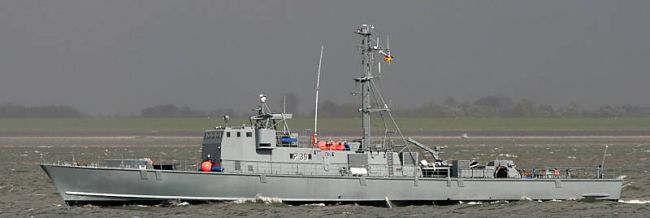WASHINGTON, Sept. 27, 2011 — When the commander of U.S. forces in the Pacific discussed regional challenges today, China topped the list.
“The United States’ relationship with China is a very important relationship that continues to need to be managed well,” Navy Adm. Robert F. Willard told reporters at the Foreign Press Center here.
“As always, the Asia-Pacific [region] remains a thrilling and challenging part of the world, critical to the global economy, critical to the United States and its interests,” he added.
Asked about China’s reported plan to curtail military exchanges with the United States in response to U.S.-Taiwan arms sales, Willard said he is hopeful that high-level discussions between U.S. and Chinese officials will continue. When the subject of Taiwan arms sales surfaced in the media last week, Willard said, he was hosting China’s Jinan Military Region commander, Gen. Fan Changlong, at U.S. Pacific Command headquarters in Hawaii.
“We discussed many things,” Willard said, mostly the things that the United States and China have in common. Taiwan arms sales also came up, he added, but Fan “did not raise the issue of consequences to our military-to-military relationship, should that occur.”
The past year has seen extensive senior-leader engagement between the two nations, the admiral said, noting that he attended the Strategic Security Dialogue between U.S. and Chinese defense and foreign affairs representatives. That meeting was effective in addressing some strategic-level issues, he added.
“I think that regardless of the effects of this particular round of Taiwan arms sales and disagreement between our two governments on that issue, China will be very likely to retain the high-level visitation … that will enable us to continue those strategic-level discussions,” he said.
The admiral said the combat power China directs toward Taiwan is “very significant,” and the U.S. interest, in accordance with the Taiwan Relations Act, is that Taiwan have the necessary capabilities and services to defend itself. That defensive capability enhances stability across the Taiwan Strait and enables the ongoing dialogue between China and Taiwan. That, he added, ultimately will “lend to a more favorable outcome, not detract from it.”
The United States and China are too concerned in security issues both in the Asia-Pacific region and the world “to allow any single disagreement between governments to stop consultations altogether,” Willard said.
“And I’m very hopeful that the Chinese leadership recognizes that,” he added.
Senior Defense Department officials recognize the importance of close communication with Chinese military leaders, Pentagon Press Secretary George Little told reporters today.
“Our expectation, clearly, is that we’ll continue to maintain communication and cooperation as we can with the Chinese,” Little said. “It’s essential, of course, to continue dialogue with our Chinese military counterparts, and transparency is a key touchstone of that. So, we hope to continue along those lines.”
China’s relationship with Pakistan also is a factor in the “very complex” security dynamic in South Asia, Willard said.
China and Pakistan’s longstanding military-to-military and government-to-government relationship, Willard said, is significant given the overall dynamics of the region, including India’s dispute with Pakistan over the Kashmir region, the contested border between northern India and China, and Afghanistan.
Willard said he believes China recognizes the importance of a regional outcome in which relations among Afghanistan, Pakistan and India continue to be managed.
“I think China’s interests and U.S. interests in the region, while we don’t spend a lot of time dwelling on this, are inherently convergent and desire a stable South Asia,” the admiral said.
Source:
U.S. Department of Defense
Office of the Assistant Secretary of Defense (Public Affairs)

 von
von 
